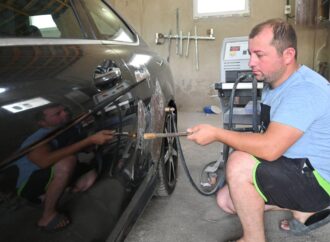Suvera: Reimagining primary care, for both GPs and patients
As a UCL medical student and NHS clinical entrepreneur, Dr. Ivan Beckley was all too aware of the pain points and internal processes slowing down the healthcare system.
He recognized that increasing demand and workforce challenges boiled down to an over-reliance on appointments for managing patients with long-term conditions, which make up 50% of all general practitioner (GP) appointments in the UK.
Ivan believed that these patients could be better managed at home with technology, as opposed to an endless series of reactive and oftentimes unnecessary in-person appointments.
Drawing from significant experience interning at various health tech startups (including being the first med student to work at DeepMind), Ivan teamed up with fellow NHS medical student Will Gao, alongside close friend and product designer Ryzard Akita, to create Suvera, a virtual care service designed for patients with long-term conditions that integrates completely with existing GP workflows.
“We are fundamentally designing a new healthcare experience,” said Ivan. “Society needs to ditch the notion that healthcare only happens when you are sat in front of your GP.”
The Suvera platform enables proactive health care from home by working with GPs to provide services remotely for patients with long-term chronic conditions, such as diabetes and hypertension.
Suvera’s dedicated virtual care team uses in-house technology to virtually support qualified patients with everything from tracking blood pressure results to administering prescriptions.
This frees up time for both patients, who no longer need to schlep to appointments, and doctors, who can use the Suvera platform to oversee their patient’s long-term conditions without needing to see them as regularly in person.
Clearly, it’s a win-win, as in less than a year Suvera onboarded more than 40 GP practices and supported over 20,000 patients to date—90% of whom said they wished to continue using the virtual service.
“We’ve identified that up to 70% of patients that have interacted with the platform have uncontrolled blood pressure, yet 12% of GP appointments in the UK are currently dedicated to managing patients with high blood pressure, and nearly all of them happen in person,” said Ivan. “There is an acute need to reduce this demand for care on practices by making services like Suvera available online.”
Neither med students nor founders have much free time—let alone med students-founders-CEO—podcast hosts! So Ivan gave himself a crash course in startup entrepreneurship via YouTube.
“I’d study companies who are doing well, building great products, and growing really fast. I’d learn everything about them, analyzing the decisions made by their founders and their early hires.. .” Ivan remembers. “It sounds simple, but I mainly learn by deeply studying how companies have navigated their growth and failures.”
The onset of COVID-19 accelerated the need for virtual healthcare. To get the hands-on mentorship and support Suvera needed to quickly scale, Ivan applied for the 12-week Google for Startups Black Founders Immersion program in early 2020.
Later that year, Suvera was selected out of 800+ applicants for the Google for Startups Black Founders Fund, which provides non-dilutive cash awards, along with Google Cloud credits and hands-on support, to high-potential Black-led startups in Africa, Brazil, Europe, and the U.S.
Ivan joined the Head of Google for Startups UK Marta Krupinska on Sky News to celebrate the news. “The amount of people that applied is a testament to the talent represented by Black-owned businesses,” Ivan told Sky News.
“For us personally, [receiving the Black Founders Fund] is recognition that what we’re doing is important in the world, from the perspective of arguably the most important technology company globally.”
Ivan leveraged Black Founders Fund support to secure additional follow-on funding. In 2022, Suvera raised a £5 million seed round led by Morningside Ventures, a Boston-based private equity and venture capital firm committed to investing in socially responsible businesses.
These investments will allow Suvera to continue to reach more patients and partners across the UK—although Ivan doesn’t want to grow too big, too fast. “We need to take a bit of a risk and invest in those small teams that maybe don’t have this massive track record, but are very close to the problem,” said Ivan.
“The healthcare system will no doubt be transformed by the use of technology. To what extent, depends on how willing the system is to learn from those in it—and it’s this possibility that motivates me.”
Ivan’s advice to aspiring founders? Know when to pivot. “Don’t be attached to your first, second, or third idea; just focus on getting to something that works.”


























Leave a Comment
Your email address will not be published. Required fields are marked with *